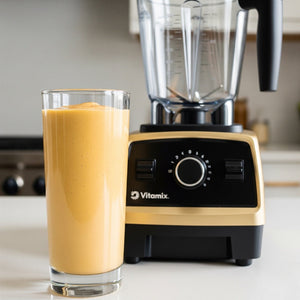
This page contains affiliate links and are asterisked as they appear.
When it comes to intermittent fasting (IF), there are a lot of things up for debate. While there’s still discussion as to the best way to practice IF, the research is clear on at least a couple of things:
Those who stop eating earlier see better results than those who start eating later (aka an early dinner is more effective than a late breakfast and one of the biggest reasons I recommend syncing your fast with your circadian rhythm)
Fasting gives your body an extended period of rest from the work of digestion, allowing it to attend to other important functions like cellular repair, beneficial alterations in gene expression, cognitive maintenance, hormone balancing, and decreasing inflammation.
IF increases your need for electrolytes. Insulin is responsible for moving blood sugar into your cells, but also for telling your kidneys to excrete sodium, which is why lower carb diets including fasting and keto, contribute to both reduced blood sugar and insulin levels as well as a decrease in electrolyte levels (the few studies that exist in this area show that sodium, potassium, and total body water are all decreased during fasting).
Because food is our primary source of electrolytes, fasting for more than 12 hours at a time can put you at risk for deficiency, which can impact how you feel each day as well as the results of any diet or lifestyle changes you’re making. By supporting yourself with adequate electrolyte intake even during a fast, you’ll experience things like:
Fewer “keto flu” symptoms, including low energy, headaches, and fatigue
Less of the weight rebound commonly associated with cutting down on your carb intake or starting a fast and then starting to eat normally again. The initial weight loss you see here often is related to water loss from the breakdown of glycogen (stored sugar). Sodium supplementation can reduce the post-fasting weight gain to only 39% of the original amount lost.
Increased stamina and athletic performance, as well as reducing your risk of hyponatremia, a potentially fatal condition that impacts around 15% of endurance athletes
How much supplementing you need to do during a fast really depends on the type of fast you’re doing. For example, if you were to fast for an entire day, you could reasonably supplement up to the amount of sodium and potassium you’d normally get from food (up to 5 gm a day of sodium, and at least 1 gm potassium). That being said, if you practice IF like I do, I like to suggest my clients try eating with their circadian rhythm (eat when it’s light out, stop when it’s dark), then you still have ample opportunity to get electrolytes from the food you eat throughout the day. In this kind of scenario I recommend including a simple hydration drink like my favorite, LMNT.
Designed to support proper hydration and electrolytes levels while fasting, during exercise, and throughout your daily life, LMNT contains just sodium, potassium, and magnesium and is completely free of sugar. They have 9 flavors (including unflavored) so you can find your favorite or mix it up, all while ensuring your body is getting the electrolytes it needs to function its best every day.
While I can definitely go full-on nerd and love to chat about all things science, I’m also a huge proponent of keeping things simple when it comes to nutrition. Understanding the ins and outs of nutrition can make it easier to see why some changes are important, and I wholeheartedly believe that education leads to empowered choices. But when it comes time to actually make those changes I like my clients to focus on one thing at a time and become masters in the basics - nutrition, movement, and sleep - and then add on tools like intermittent fasting to enhance the results they’re already seeing. If fasting isn’t your style, you can still benefit from adding in an electrolyte supplement (read more about that here).
Right now, you can try LMNT for free - you just pay for shipping! Click here* to get your hands on a sample pack and find your favorite flavor.





